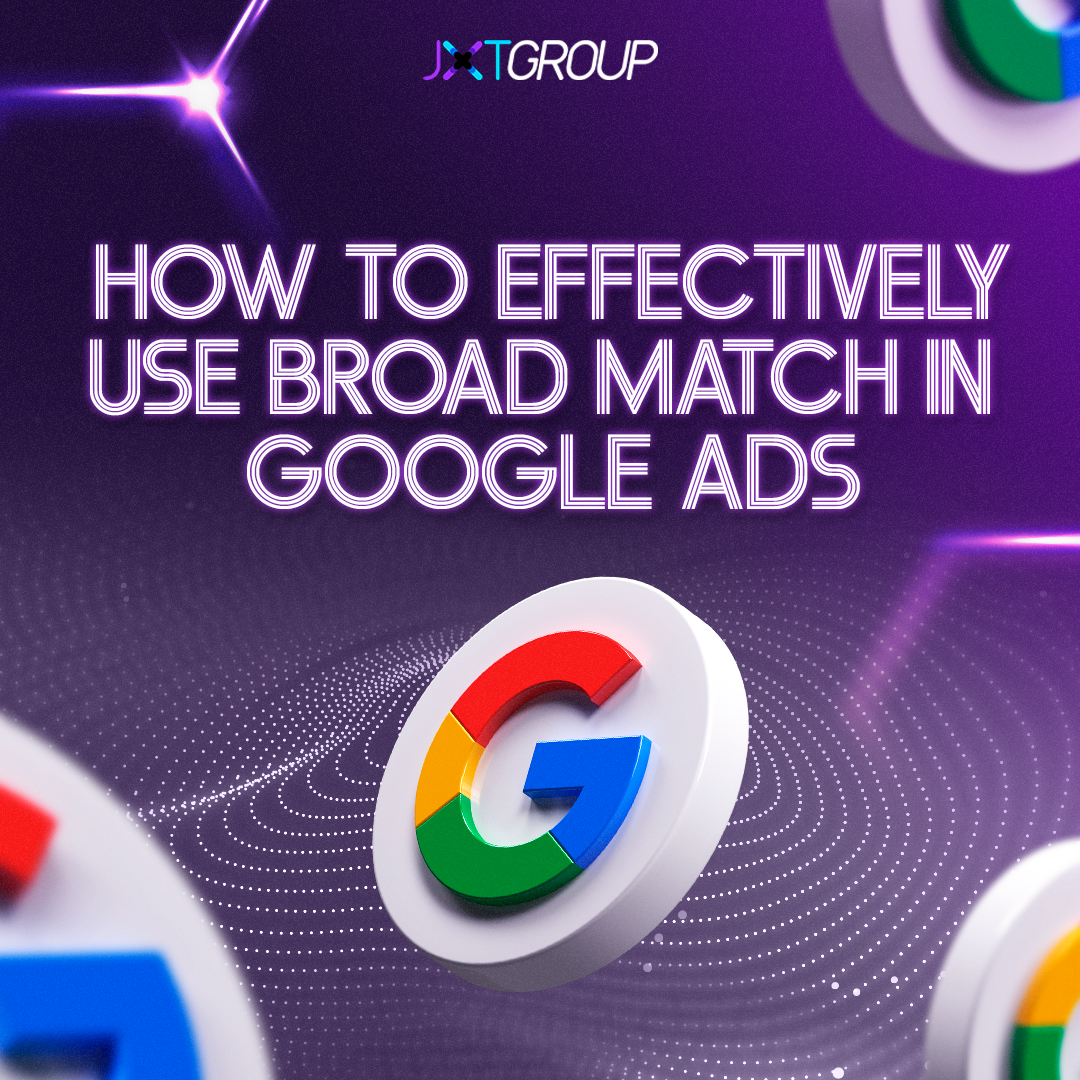Among the various keyword matching options available in Google Ads, broad match is one of the most versatile and widely used options. Even Performance Max campaigns, Google’s most cutting-edge smart shopping feature, will default to broad match keywords in Search.
So it’s probably not surprising that updates regarding broad match brand controls were one of the big topics to come out of the recent Google Marketing Live 2023 event (specifically the ability to restrict campaigns to only show for branded searches that are aligned with the brands that you, as the advertiser, designate, which ensures additional reach for broad match while matching all relevant brand traffic).
When used correctly, a broad match can be a valuable tool to expand your reach and capture relevant leads. However, it requires careful planning and monitoring to ensure you get the best results:
Understanding Broad Match
Broad match is a keyword-matching option that allows your ads to be triggered by variations, synonyms, and related searches of your chosen keywords. When you use broad match, your ads can appear for searches that include misspellings, singular or plural forms, stemming variations, abbreviations, and even relevant phrases that may not explicitly contain your keywords.
For example, if your broad match keyword is “running shoes,” your ad might appear for searches like “best athletic footwear” or “comfortable sneakers for jogging.”
Advantages of Using Broad Match 
Here are just some of the key reasons to utilize broad match:
Increased Reach: Broad match helps you tap into a broader audience, potentially reaching users who might not have found your ads using exact or phrase match. It allows you to explore new keywords and discover untapped markets.
Keyword Discovery: By using broad match, you can identify new keyword opportunities that you may have overlooked during your keyword research. These insights can be used to optimize other aspects of your advertising campaigns.
Time Efficiency: Broad match saves time compared to creating exhaustive lists of exact or phrase match keywords. It simplifies the process while still being effective when managed properly.
Tips for Using Broad Match Effectively
Try these techniques for your next ad campaign using broad match:
Start with a Narrow Keyword List: Begin your campaign with a tightly focused list of relevant keywords. This will help you maintain some control over the types of searches that trigger your ads. Gradually expand your list as you gain insights from campaign data.
Negative Keywords are Crucial: Utilize negative keywords to prevent your ads from appearing for irrelevant searches. Regularly review search terms reports and add irrelevant search queries as negative keywords to refine your targeting.
Monitor and Refine Regularly: Keep a close eye on your campaign’s performance and adjust your keyword list as needed. Identify high-performing keywords and move them to more specific match types if required.
Use Modified Broad Match: To have more control over broad match keywords, consider using “Modified Broad Match.” By adding a “+” sign before certain keywords, you can ensure that those terms must be present in the user’s search query for your ad to be triggered.
Leverage Broad Match for Branding: Broad Match is ideal for brand awareness campaigns. Use it to showcase your brand to a wider audience, even if the specific keyword may not directly relate to your products or services.
Segment Campaigns by Match Types: To maintain better control over your ads, consider segmenting your campaigns by match types. Create separate campaigns for broad match, exact match, and phrase match, allowing you to allocate budgets more effectively.
Regularly Review Search Terms Report: The search terms report is a goldmine of information. Analyze it frequently to discover new search queries that trigger your ads and identify negative keywords to add.
Broad matches in Google Ads can be a potent tool for expanding your reach, discovering new keywords, and driving relevant traffic to your website. Remember that regular refinement and optimization are key to making the most out of this keyword-matching option. With a well-thought-out strategy and continuous evaluation, you can achieve desirable results and improve the potential of your Google Ads campaigns.
But don’t forget, broad match is just one of the many tools available for your Google-based digital marketing campaigns…. though taking advantage of the full arsenal requires specialized knowledge.
Are you ready for a customized strategy for your Google Ads that maximize the full power of Google’s tech on your behalf? As a Google Premier Partner, JXT Group has successfully improved campaigns for smaller and local businesses like yours. Find out more by calling our team at 718-690-7302 or reaching out online via our website inquiry form.

